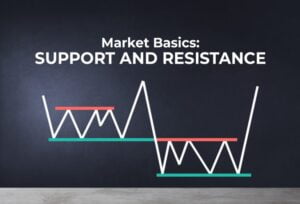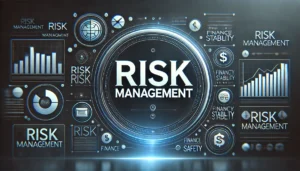
While the exponential growth of digital currencies has opened new doors of opportunities for investors, it has also made this sphere one of the most lucrative targets of scammers.
Unfortunately, cryptocurrency scams sit on top of the ‘online scams list’ either due to a large number of oblivious crypto investors or its unregulated and decentralized ecosystem. According to an FTC report, since the start of 2021, more than 46,000 people have reported losing over $1 billion in crypto to scams– that’s about one out of every four dollars reported lost, more than any other payment method.
Crypto scams come in many forms – some are triggered by extrinsic factors, while others involve whole crypto projects that are frauds in themselves! Here are a few tips to help you protect yourself against the prevalent crypto scams.
1. Research the project – examine all prospects
When engaging with the crypto domain, the first thing on your to-do list should be to extensively research and scrutinize the projects you are inclined to invest in. Be one of the well-informed participants and gain the necessary virtual markets knowledge. Some important questions you can check include:
- Who are the project creators, and how trusted are they? Do they have any proven blockchain/crypto-related track record? Are any credible investors backing the project? Do the developers exercise an established social media presence?
- What is the technology behind the coin? How will it derive value? Are there any characteristics making this asset unique from the already present ones?
- Does the project have any settled community on forums like Discord or Twitter?
- Does their website look genuine and professional? Do the figures and information appear credible, or are they obviously exaggerated?
By doing this necessary drilling, you can evade shady crypto projects and not regret later on. Moreover, it is not a bad idea to take help from any trusted professional with sufficient expertise in the crypto industry.
2. Guarantee of returns and generous giveaways are a ‘big red flag.’
Whenever you spot a project with big claims of easy and quick money, remember to bypass that one.
Promising substantial gains has always been the primary tactic of online scammers to lure in victims. And this method has especially become the central approach of crypto scammers due to the inherently un-checked nature of digital coins.
The extensive promises of guaranteed returns or tempting giveaways are almost always rubbish. Even the most traditional & long-established investments are not risk-free, so how is it possible that a speculative digital class that gained traction only a few years ago is completely risk-resistant? Also, note that the crypto market swings are known to be the most volatile, where prices can significantly decline within a few minutes. So, all in all, be highly aware of the ludicrous “confirmed returns and giveaway” pledges.
3. Avoid all suspicious links – beware of phishing attempts
Phishing is quite an old scamming method that has now become quite relevant in the crypto sphere. It occurs when someone invites you to click on a suspicious link or convinces you to expose your private data. While phishing can happen in many ways, the end purpose of fraudsters is to take control of your personal data, passwords, or other information that can hurt you monetarily.
Stealing crypto coins via phishing has become the new norm nowadays. Hence, be fully cautious of any suspicious emails, URLs, or persons approaching you with offers. Avoid clicking on hyperlinks from unknown sources and only open links having guaranteed authenticity.
4. Go for reputable exchanges – Look out for lookalike scams
The emergence of a large number of fake crypto exchanges has taken the scamming business to the next level. Now many malicious actors are setting up whole crypto platforms and websites with the sole purpose of –ripping off their customers. These exchanges either steal coins explicitly or adopt a more subtle method to swindle the crypto investors. Moreover, a wide scale of “lookalike” exchanges can also be found that imitate the popular crypto platforms to steal assets.
The easiest way to evade such crypto cams is to join reputable exchanges and carefully crosscheck the website URLs with their official forums. Avoid doing experiments with unknown crypto services with no insurance funds. You probably don’t want to risk all your hard-earned money due to a gut feeling, test & trial, and greediness, or do you?
5. Analyze a coin’s white paper
A white paper is considered the core of all crypto projects as it defines their underlying framework, vision, and future roadmap. Hence, naturally, the paper must include professional language and content with real technical knowledge.
What most fraudsters do is they indeed publish a white paper, but they don’t have the time or resources to draft a genuine one. Most scam projects include a white paper with exaggerated facts, lacking content, or in the worst case, spelling and grammatical errors. The famous squid crypto white paper is one of the examples of such crypto scams.
6. Take care of your crypto wallet’s security
The basic purpose of crypto wallets is “securing” the stored funds, and if that very thing gets compromised, what would be the purpose of this whole fuss? To keep the scammers and hackers outside of your wallet, leave no stones unturned to ensure the safety of your hardware or software wallet. Never share your passcode or private keys with anyone on any platform under any condition.
Closing thoughts
While getting scammed online is a common occurrence, crypto scams are becoming even more common & consistent nowadays, taking this entire scam equation to the next level. Also, besides the older scams like rug and pull, various new kinds of tricks, such as romance scams and pig butchering, are also growing prevalent.
With that said, all this turbulence entails a higher caution and awareness on the part of the investors. Although the fraudsters have adopted unique approaches to scamming, you just have to stay a step ahead to overpower them! However, remember that this whole crypto institution is quite risky overall, so only invest what you could afford to lose.
Read more:
https://thetradingbay.com/what-is-cryptojacking-what-are-the-types-of-cryptojacking/
https://thetradingbay.com/where-squid-game-crypto-stands-after-last-year-scam/












